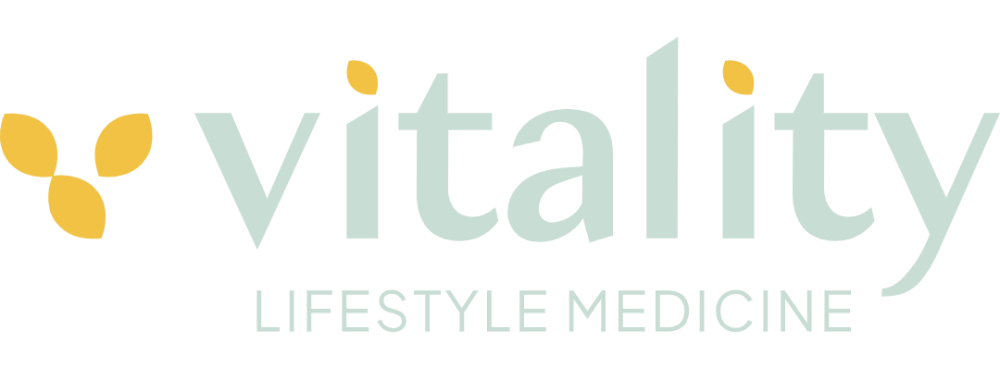The Energy Emergency: Understanding How Stress Leads to Fatigue.
Dec 15, 2024
The Energy Emergency: Understanding How Stress Leads to Fatigue.
Have you ever wondered why you can push through an immediate crisis with surprising energy, but ongoing stress leaves you feeling completely drained? As a medical doctor and Lifestyle Medicine advocate, I want to share a fascinating insight about your body's clever but complex stress response system.
Think of it like this: Your body has two emergency response teams. Team Adrenaline is your rapid response unit - they're incredibly effective but can only work short shifts. Team Cortisol is your backup team - they're built for endurance but weren't designed to work overtime for months on end.
The Science Behind Your Stress Response
When stress hits - whether it's a near-miss in traffic or a crazy work schedule - your adrenal glands immediately deploy Team Adrenaline. This gives you that surge of energy and laser focus you need in the moment. Your heart races, your breathing quickens, and you're ready for action. You can do anything!
But here's the crucial part that many people don't realise: adrenaline is a short-term solution. It's like a sprint - powerful but quick to deplete. When stress continues beyond this initial burst, your body switches to Team Cortisol for the marathon. While cortisol helps maintain your energy through prolonged stress, it was never meant to stay elevated indefinitely.
Understanding Your Body's Stress Signals
Your body is brilliantly designed to handle acute stress - those short-term challenges that come and go. However, in our modern world, many of us are living with chronic, low-level stress that keeps our cortisol levels consistently elevated. This is where the trouble begins.
Signs Your Stress Response Needs Attention:
- Difficulty falling asleep despite feeling exhausted
- Mid-afternoon energy crashes
- Mood fluctuations
- Digestive challenges
- Frequent infections or slow recovery
- Changes in blood pressure
- Sugar and salt cravings
- Brain fog and poor concentration
The Impact on Your Daily Life
When your adrenaline reserves are depleted and cortisol stays elevated, you might notice:
- Waking up feeling unrefreshed, even after a full night's sleep
- Struggling to maintain energy throughout the day
- Finding it harder to bounce back from minor setbacks (aka Cranky-Pants)
- Experiencing unexplained aches and tension
- Having trouble maintaining your usual exercise routine
- Feeling overwhelmed by tasks that used to be manageable
So What Can I Do?
The beautiful news is that your body has an incredible capacity to restore balance. Through understanding and supporting your natural stress response system, you can begin to rebuild your energy reserves and resilience.
Key Steps to Support Your Stress Response:
- Recognise Your Stress Signals:
Learn to identify when you're running on adrenaline versus when you're dipping into cortisol reserves. Early recognition is key to preventing energy depletion.
- Reset Your Rhythm:
Establish regular sleep and wake times to support your body's natural cortisol rhythm. Your body thrives on consistency. Try to get 10 minute of first morning light when you wake up (and no, through a window doesn’t count). This tells your body it’s time to get the day-time rhythm going.
- Refuel Wisely:
Choose nourishing foods that support stable blood sugar levels. This helps prevent additional stress on your adrenal system. Prioritise healthy protein, healthy fats and lots of colourful vegetables.
- Recharge Daily:
Include regular "micro-breaks" in your day. Even five minutes of conscious breathing can help regulate your stress response. Try breathing in through your nose for the count of 3, hold your breath for the count of 4, breath out through your mouth for the count of 5 (The 3-4-5 Breathing Techniques). Do this 3 times in a row and marvel at how calm you feel (really!).
- Rebalance Your Lifestyle:
Look at the bigger picture of your daily routines and commitments. Are there areas where you can reduce unnecessary stress?
Moving Forward
Remember, stress isn't inherently bad - it's a natural part of life that helps us grow, adapt, and build resilience. The key is understanding how to work with your body's stress response system rather than against it.
Your body is sending you messages all the time. By learning to recognise and respond to these signals early, you can prevent the cycle of energy depletion and begin building sustainable vitality.
Take Action Today:
- Notice your energy patterns throughout the day
- Identify your personal stress triggers
- Begin implementing small, consistent recovery practices
- Seek support when you need it - you don't have to figure this out alone
As a General Practice doctor, I'm passionate about helping women understand and work with their body's natural rhythms. If you're ready to dive deeper into understanding your stress response and building sustainable energy, I invite you make an appointment to discuss your health concerns or to explore my resources designed specifically for women who are ready to move from surviving to thriving.
Remember, small changes, consistently applied, can lead to remarkable transformations in your energy and wellbeing.

